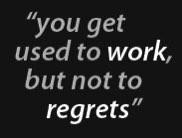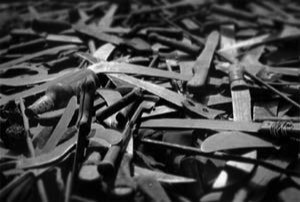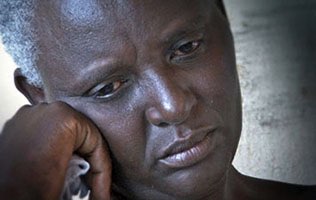Encounters with conflict and peace
All I can see are obstacles
For some young adults, the genocide took away their hope for a future.

Olivier believes that opportunities for education and improved living standards will help people like Angelique. “I think that when people have the basics of life they are more content,” he said. And Rwandans are working hard to build hope and improve life for everyone, but sometimes they are fighting centuries of corruption and negativity.
Their President, Paul Kagame is determined to tackle this head-on. “You won’t find it written anywhere that Rwanda - or Africa - is meant to remain poor. Or that we are subhuman and there are others who are superior to us and therefore should look after us. The struggle to move from poverty to development is about bringing out the best that we are, and that we can be. And it is within us; within our children…”
I don’t understand what happened
Many Rwandans are still disturbed by questions about what happened during the genocide - the ‘supernatural doings of ordinary people.’

“These learned people were calm, and they rolled up their sleeves to get a firm grip on the machete. So for people like me who have taught the Humanities their life long, criminals such as these are a terrible mystery.”
Finding some answers to questions like these through education or reconciliation workshops and even the gacaca courts is helping people feel a little more settled, a little more secure.
Beyond survival

Jeanne Mukamusome, director of medical services at AVEGA, says that some survivors who have found ways to meet their basic survival needs are now facing the psychological wounds.
“In 1996, when people came to AVEGA, it was more to look for shelter, school fees, food or clothes for their children or themselves,” she says. “Today, it’s more complicated. The trauma is more psychologically oriented.”
And for many Rwandans, finding ways to be free to live a productive life - to become genuinely ‘whole’ again - is endlessly fascinating, always challenging and sometimes divisive.
Dealing with yourself first
Annet has had years of experience working with children and teens in Rwanda. “I think that people need to deal with themselves first. Trauma doesn’t just affect your relationship with other people - it affects you with yourself,” she says. “Sometimes people feel guilty about something that happened. ‘If I had done this, then that wouldn’t have happened; if I’d hidden my family, maybe I wouldn’t have lost them.’ Things like that leave you separated within yourself.”
Often the thing that causes the most pain is very personal and very specific. For several years a young survivor said that her mother had died in the Ntarama church massacre. It was only later that she described how her mother was killed in the marshes. They had been separated as they ran through the swamps, fleeing the interahamwe. The girl had been tormented by the idea that if she had stayed with her mother, perhaps she wouldn’t have died. Then “time offered the girl a little peace, so she could remember the truth - and she accepted it.”
Recently I told this story to a close friend. She said, “twenty-one years ago my baby died a few hours after being born. The doctors took him away from me to try to revive him, and for a long time I thought, ‘what if I’d been able to just hold him and keep him warm? Maybe then he would have lived.’
“Later I realised that the thing I was hanging on to - that upset me so much - was actually a fantasy. My baby didn’t die because I wasn’t holding him. The truth was that he was going to die anyway and there was nothing I could have done to save him.”
Related pages
Survivor questions
AFTERMATHAnnet came to Rwanda a few months after the genocide. "There was a lot of suspicion and a lot of questions. Where was the international community? What did the UN do? Where was God during the genocide? Why did he leave us? Why does God hate the Tutsi? Why do the mzungu hate the Tutsi? They didn’t do anything to save us.”.... watch
Annet: I came to Rwanda
AFTERMATHMy work was to talk to the children to try to find out where their families might be. I would trace their families and try to find out whether they had relatives or parents still living and, if possible, re-unite them with their families. Later I'd go to visit them, to follow them up and see how they are doing in their communities.... watch
< previous page | next page >
In this section
AN EXPERIMENT IN RECOVERY
Back from the edge
Experiment in recovery
A new Rwanda
JUSTICE
An overloaded system
The importance of justice
Teaching gacaca
Confronting the past
Soft justice?
Has gacaca delivered justice?
PEOPLE WHO KILLED
Helping killers
Sorry
MIND DAMAGE
Recovering from genocide
Living with the pain
Obstacles
Where does it hurt?
BUILDING PEACE
Breaking the cycle
Building peace

Back from the edge
Experiment in recovery
A new Rwanda
JUSTICE
An overloaded system
The importance of justice
Teaching gacaca
Confronting the past
Soft justice?
Has gacaca delivered justice?
PEOPLE WHO KILLED
Helping killers
Sorry
MIND DAMAGE
Recovering from genocide
Living with the pain
Obstacles
Where does it hurt?
BUILDING PEACE
Breaking the cycle
Building peace

